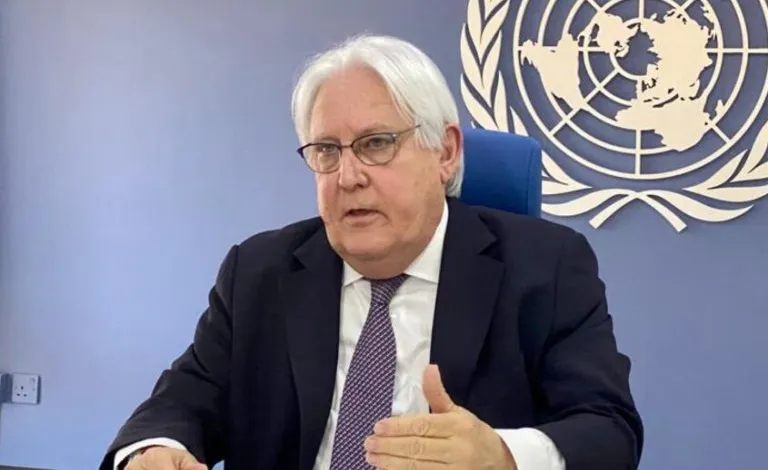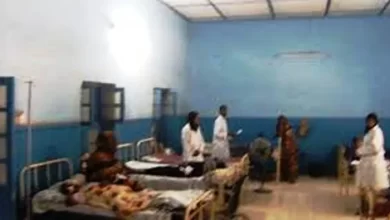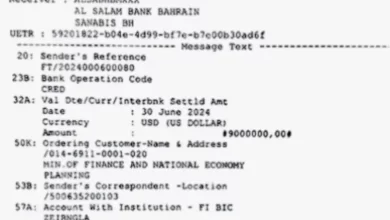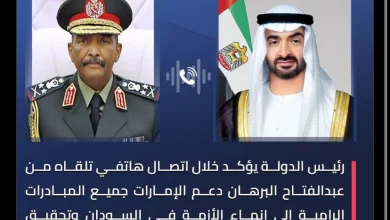United Nations: “I am not with the Army” shouldn’t warrant
Imprisonment of Sudanese

The UN High Commissioner’s Designated Expert on the situation of Human Rights in Sudan, Radhouane Nouicer, accused the Sudanese Army and its allied militias of arresting Sudanese citizens without clear reasons.
During his meeting with the Director of General Intelligence Service, Radhouane Nouicer demanded the release of citizens detained by the Army, Security Service, and Police Force because of ideas and articles shared on social media, stressing that voicing one’s opinion shouldn’t warrant imprisonment.
Nouicer added: “The phrase (I am not with the Army), and (I support the Rapid Support Forces) have become sufficient grounds for imprisoning a person.”
Radhouane Nouicer noted that the Director of General Intelligence Service requested that he be provided with the names of the aforementioned prisoners. He continued: “We refrained from providing them with any names, so as not to put the detainees in additional danger.”
Nouicer revealed that government officials asked them to refer to the Rapid Support Forces as Rebel Forces, in objection to the description of “both parties to the conflict.”
He considered the description requested by Sudanese officials was political, noting that from a human rights perspective, they are considered to be one of the two Sudanese warring parties.
He explained that the current authority -referring to the de facto government in Port Sudan- rebelled against the Civilian Government by implementing the Military Coup in October 2021.
The Human Rights expert, Radhouane Nouicer added: “We do not wish to evoke this type of controversy, and we would like to limit our intervention to human rights issues and providing humanitarian aid.”
The United Nations expressed concern in regards to the dangers faced by young people and their forced involvement in military operations under the pretext of “Mobilization.”
However, Radhouane Nouicer encouraged officials to engage in political negotiations, since there are various initiatives on the table, such as; the African Union, the Jeddah Platform, in addition to the initiative led by Ramtane Lamamra, the Personal Envoy of the UN Secretary-General for Sudan.
He continued: “We encouraged them to engage in negotiations today, not tomorrow. Because it is the only way to avoid division of Sudan.”
At the same time, Nouicer warned that impact of the conflict would be dangerous in a multicultural and multiethnic country like Sudan.
The Designated Human Rights Expert, expressed his concern about the Sudanese Officials’ lack of conviction in regards to the state of Famine in the country. Explaining that the tour he took inside the city of Port Sudan revealed the high costs of living that average citizens cannot afford.
Radhouane Nouicer expressed his concern about the deteriorating humanitarian conditions of the displaced persons, as well as the inability of the host communities to withstand for a longer period of time.
Nouicer confirmed that the displaced persons were left on the streets after they were evacuated from schools due to the school’s resumption of their activities without providing housing alternatives, pointing out that some of them were displaced more than once.
He continued: “Civilians, children, women and people with disabilities, are paying the highest price for this conflict.”
The Designated Expert expressed his profound sadness at the nearly (2) million people, including engineers, traders, and others, leaving the labor market, indicating such great losses in the country’s human resources.
The Human Rights Expert confirmed that his meetings with officials in Port Sudan focused on four major points: Protecting civilians, facilitating the provision of humanitarian aid to those in need, not prosecuting people for their opinions, accountability, and addressing impunity.
The UN High Commissioner’s Designated Expert on the situation of Human Rights in Sudan, Radhouane Nouicer’s visit to Sudan extended from the 7th to 11th of July, which is his first visit since the outbreak of the war and the second since he assumed the position of Designated Expert on Human Rights in Sudan in December 2022.





